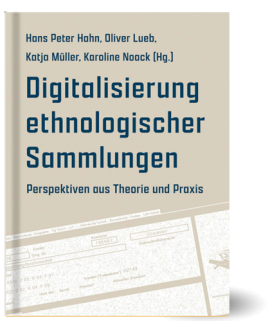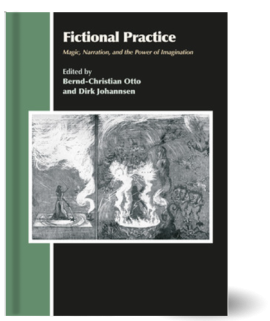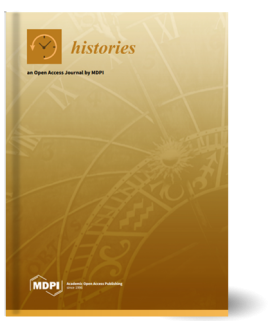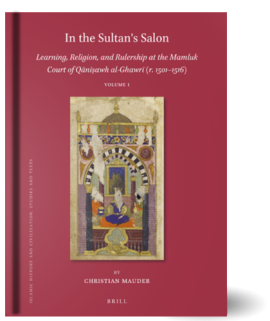|
If the newsletter does not display properly, please click here. |

|
||||
|
||||
|
Dear friends and colleagues, Again, this Wednesday Weekly starts with an invitation to our colloquium next Wednesday – this time with our Senior Research Fellow Dietrich Jung. We also present a whole series of new publications for you. Besides that, we have a recommendation for a book talk and a job offer, and we would like to close with a note on the Leipzig Jazz Days 2021. Enjoy and have a great week! Anja & Lucy |
||||

|
||||
Next week’s colloquium: Dietrich Jung on “Islamic Modernities in World Society”Next Wednesday our Senior Research Fellow Dietrich Jung will give a presentation on his research project “Islamic Modernities in World Society. The Rise, Spread, and Fragmentation of a Hegemonic Idea”. His project explores the multiplicity of answers that Muslims have provided to the question “How is one ‘authentically’ modern?” These answers relate to ideas of citizenship, educational and moral cultivation, economic entrepreneurship, political institutions, scientific knowledge, bodily performances, and forms of consumerist and creative self-made identities. Drawing on different strands of social theory, he interprets this specifically Islamic discourse of modernity as an inherent part of global modernity, in conceptual terms understood as the emergence of world society. As usual, you find the relevant readings in the member area. The colloquium will take place as a hybrid event. If you would like to attend in person, please register via e-mail. The number of physically present participants again is limited to 10 people. Please note that this time we will start at 10.15 a.m., one hour later than usual. In the member area, you will also find the zoom connection data in case you plan to join the colloquium online.
29 September | 10.15 a.m.–12.45 p.m. (CET) Hybrid format | Strohsack, 4.55 and via zoom |
||||
|
||||
|
||||
|
||||
|
||||
|
||||
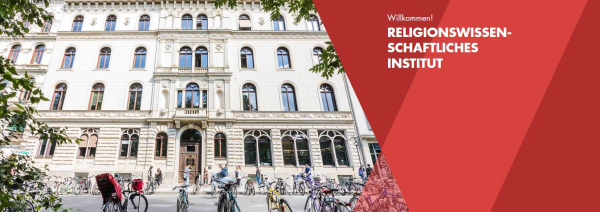
|
||||
Job Opportunity: Junior Professorship in the History of Religions (W1 with Tenure Track to W3)We would like to draw your attention to a relevant job opportunity announced by Leipzig University’s Faculty of History, Art and Area Studies: The Institute for the Study of Religions seeks to fill a tenure track professorship, funded by the Tenure Track Programme of the German Federal Government and the Federal States, from 1 October 2022. Applicants must hold a master’s degree and a PhD in religious studies or in a discipline relevant to the study of religions. Teaching experience, commitment and teamwork skills are also expected. Applicants must demonstrate a research specialisation in at least one area of the history of religions. Special expertise in the field of entangled and/or global history, preferably with reference to pre-modern East Asia, would be desirable.
|
||||

|
||||
Leipzig Jazz Days (Leipziger Jazztage) 2021Our director Monika Wohlrab-Sahr is recommending a closer look at The Leipzig Jazz Days (Leipziger Jazztage) 2021, that will take place from 30 September to 9 October at a variety of venues throughout the city of Leipzig. With the overarching theme “Body Time” the festival in its ten-day programme focuses on the human body. Local and national musicians highlight aspects of physicality in the context of music production and reception. Leipzig Jazz Days wants to invite you to experience the basic mechanisms of human existence in general and the experience of music in particular with a heightened awareness of reflection and sharpened senses. Advance booking for the festival has begun and here you can find the programme information. The international Leipzig Jazz Days is one of the oldest and most renowned jazz festivals in Germany. Every autumn, the Jazzclub Leipzig presents well over 100 musicians over 10 days. Big names and pioneers of jazz, but also innovative newcomers, play in the venerable opera house and theatre, in the historic congress hall and in churches, but also in numerous clubs and in the oldest cinema hall in the city.
|
||||
|
If you have any content that you think suits the purpose of the weekly, please feel free to send it to us at multiple-secularities@uni-leipzig.de. |
||||
|
Kolleg-Forschungsgruppe "Multiple Secularities - Beyond the West, Beyond Modernities" Nikolaistraße 8-10, 04109 Leipzig Mail: multiple-secularities@uni-leipzig.de |
